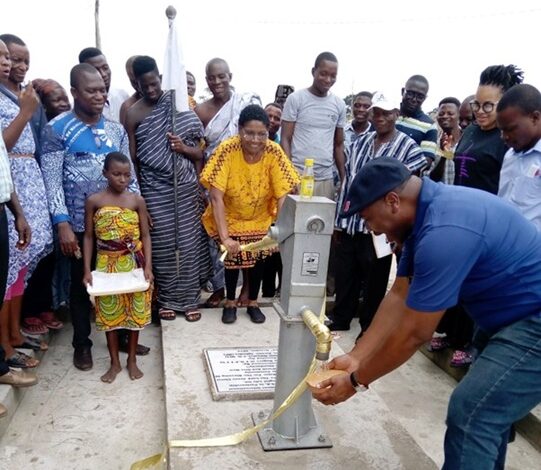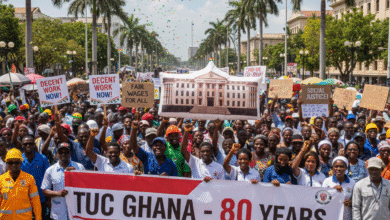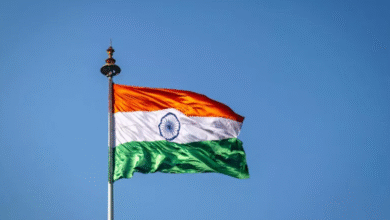No Ghanaian Should Drink From a Pit: Bridging the Rural Water Gap

By Gideon Ofosu-Peasah, Ph.D
Access to clean water is one of the most pressing challenges of our time. Globally, 2.2 billion people lacked safely managed drinking water in 2024, while 3.4 billion went without safely managed sanitation, according to the UN Sustainable Development Goals (SDG) Report 2025. In schools, 646 million children have no basic hygiene services, underscoring the urgent need for accelerated action to meet the 2030 targets.
Ghana is not immune to these challenges. While access to safely managed drinking water has risen from 14% in 2002 to 44% in 2022, the gains are unevenly distributed. A striking disparity exists between rural and urban populations: only 18% of rural residents enjoy safely managed drinking water, compared to 62% of urban dwellers. This gap highlights a stark reality: millions of Ghanaians, particularly in rural areas, still face the daily indignity of drinking unsafe water( See chart below).
By access to safely managed drinking water, we mean the proportion of individuals utilising drinking water from an improved source that is readily accessible on-site, consistently available, and free from faecal and priority chemical contamination. Enhanced water sources comprise piped water, boreholes or tubewells, protected dug wells, protected springs, and packaged or delivered water as per the World Bank’s definition.
Rural water systems face multiple hurdles: pollution, scarcity, ageing infrastructure, and weak governance. The 2023 Community Water and Sanitation Agency report notes that water in some communities contains high levels of iron, manganese, arsenic, fluoride, and bacteria exceeding Ghana Standards Authority limits. These issues are compounded by the irresponsible small-scale mining, which has polluted rivers, silted reservoirs, and disrupted freshwater ecosystems. A 2024 study by Bedu-Addo et al. highlights how this ‘galamsey’ activity not only contaminates water but also undermines recreational, spiritual, and aesthetic values, as well as aquaculture and irrigation.
Amid these challenges, meaningful solutions require targeted, community-driven interventions. This is where Meaningful Life International (MLI), a Ghanaian NGO (www.meaningfullifeinternational.org), has made a tangible impact. Over the past 20 years, MLI has drilled over 70 boreholes across 41 deprived rural communities, including North Dayi, Akim West, Wa East, Jirapa, Nkwanta, Tolon-Kumbungu, Kpando, and more. These interventions are not mere infrastructure projects; they are part of a holistic approach that combines safe water provision with community education and stewardship.
MLI’s model is simple but effective: after boreholes are installed, a community committee is established in consultation with MLI and relevant government agencies to oversee operation and maintenance. MLI conducts periodic checks to ensure sustainability. Communities are also educated on treating harvested rainwater, promoting hygiene practices, and reducing waterborne diseases. The organisation’s donor-driven work is anchored in transparency, accountability, and responsible stewardship the reflecting a faith-based commitment to human dignity and development. These efforts are consistent with Ghana Vision 2057, particularly its pillars on human development, equitable access to basic services, and strengthened local leadership. Through strategic partnerships and international collaborations, MLI has scaled its impact, bringing clean water to the most underserved areas while fostering leadership and self-reliance within communities.
Yet, despite these successes, the challenge remains enormous. Government boreholes, for example, often fall into disrepair due to a lack of maintenance. Without sustained investment, technical support, and community engagement, many rural Ghanaians will continue to rely on unsafe water.
The solution is clear: accelerated, strategic action is needed to achieve SDG 6—Clean Water and Sanitation by 2030. Drilling boreholes alone is insufficient. Equally important is the empowerment of communities, monitoring of water quality, and education on safe water practices. Faith-based and civil society organisations like MLI, in partnership with government and international donors, can bridge this gap, transforming access to water from a privilege into a right. Supporting MLI and similar initiatives is not just charity; it is an investment in health and dignity. Clean water saves lives, prevents disease, and allows children to attend school rather than fetching contaminated water. It enables women to pursue livelihoods rather than spending hours walking to distant water sources. It advances local leadership, as communities manage their own resources responsibly.
The statistics are sobering: millions of rural folks still drink from unsafe sources. But the path forward is achievable. With continued commitment, transparent governance, and strategic interventions, Ghana can bridge its rural-urban water gap. By 2030, no Ghanaian should drink from a pit—a goal that is not aspirational but entirely within reach if communities, government, and civil society unite.
Water is not just a resource; it is a human right, a cornerstone of health, and a foundation for development. As we reflect on SDG progress and national priorities, the question is simple: will we act decisively to ensure that every Ghanaian, regardless of where they live, has access to safe drinking water? The answer will define the legacy of this generation.




